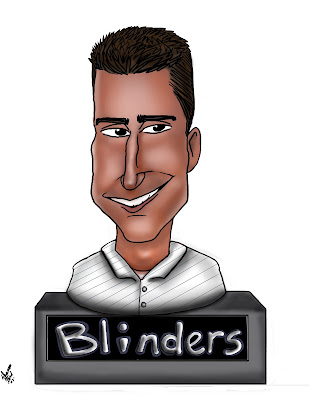Live MTT Success
For those of you who read this blog, you know that I am a cash game specialist. Though I can hold my own in MTTs, my win rate/hour is much, much lower. I do tend to do pretty well in Sit and Goes for some reason. My typical MTT strategy is to play an optimal cash game strategy (which I am very comfortable with) for as long as possible. When it gets shorthanded or my M dictates that my strategy must change, I start to make the required adjustments for MTT play. When the play gets down to 3-4 handed, or I get real short in chips, I feel I am making the right adjustments to win (close to optimal). Based on this, I feel my MTT play is pretty strong early and late in MTTs, but is a little weak in the middle where I am delaying the required adjustments better MTT players would be already making.
Online when I play this way, I appear pretty tight for the early and middle stages of the tournament, and I try to exploit this image later on by raising thin preflop and taking down uncontested pots when the blinds matter. I tend to get the credit deserved by playing tight for so long online.
Live games are another story. I have had pretty good success in live tourneys. I am the all-time cash leader on the OCPT ($2,200+), took 5th overall in the Orange Poker League last year (about 60 competitors), and have also won a few one-off large buy-in events. Part of this success lies in the fact that live players just are not as good as online players at similar stakes. Part of the success is that I pay more attention, and make more adjustments based on the other players at the table. Most importantly though, is that the live players I play with don't seem to adjust properly to the table image I am projecting.
Saturday we had a special event on the OCPT with a $1320 prize pool. I ended up taking third for $210 cash. What was interesting was how I chipped up at the final table. I was pretty low for the first three hours. I was not getting anything, and was just folding away. I ran into three flopped straights when I hit the flop myself, and ran TT vs. JJ during the rebuy section of the tournament. Out of those four difficult situations, I got stacked once (rebought), but managed to keep the pots small on the other three occasions. The one hand I showed in the first three hours was AQ, where I got it in on the turn on a AQT9 board and lost to KJ. So I showed top 2-pair and nothing else in three hours. I would finally pick pick up KK and double through QQ to get some chips to work with at the final table. So I had shown KK and AQ up to this point.
Now for the key hands. Both were against players that were from my original table, and should have had some sort of read on my play.
Hand 1:
Shorty pushes in for T210. I look down at AQs in the cutoff, and push-in T800 to isolate. Victim #1 overcalls my all-in with A7o for his entire stack of T800. Victim #1 is second all-time in earnings on the OCPT. This was a horrible play, though he justified it by saying he knew I was trying to isolate. I either have a Pocket Pair or a better Ace, as I had made no moves to this point. Shorty had KQ and my hand would hold up knocking both players out of the tournament.
Hand 2:
I pick up JJ and reraise an open of T200 to T600, and get called. Flop comes 6-high rainbow, and I push-in for T1400. Victim #2 thinks about it, and then calls with A7o (2 overs?). I dodge the ace and get nearly a full double up again and enough chips to make a run at the title, while eliminating another player.
I guess the point of all of this is not anything new. Your table image only matters to those who are paying attention. If you make a play based on your image to someone who does not care, it will not work. If your opponents are not paying attention, it is best to wait for a big hand and play it big. They will think you are making a move, even though there is no evidence that you have made any moves up to this point. This kind of sums up how I play live MTTs, and it tends to work. I sometimes use my tight image to steal late (like in online tourneys), but more often then not, I just get my big hands paid off, by playing them big.
Labels: Live MTTs



0 Comments:
Post a Comment
<< Home